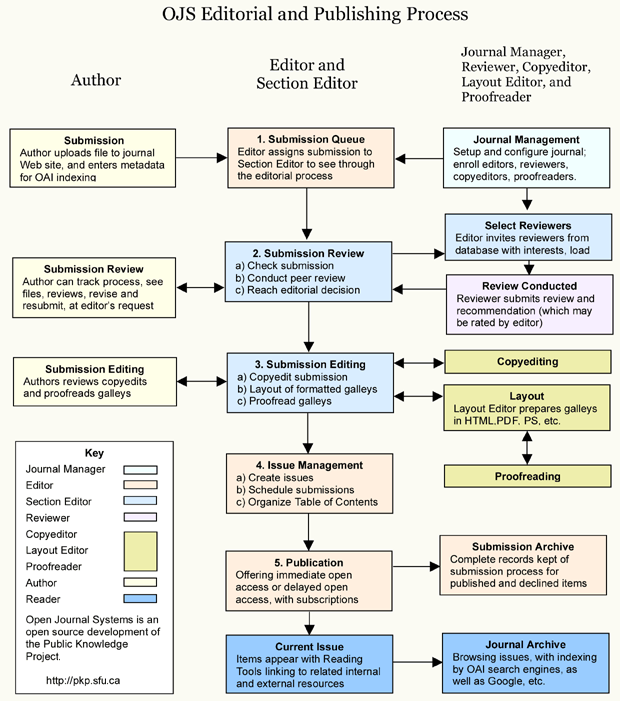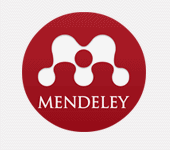- Focus and Scope
- Section Policies
- Peer Review Process
- Open Access Policy
- Archiving
- Publication Ethics
- Screening for Plagiarism
- Author Fees
- Licensing
Focus and Scope
This journal is focused on the study of Islamic Education. The coverage include both review articles as well as research articles in those fields. Subjects coverd in this journal include:
1. Studies in Islamic Education
2. Figure of Islamic Education
3. Innovation of Islamic Education
4. Islamic Education Management
5. Studies in Science Education
6. Teacher Education
7.Teaching & Learning
8. Education Development & Society
9. Educational Leadership
10. Educational Technology
11. Learning Media is Islamic Education
Section Policies
Articles
Peer Review Process
All submitted articles considered for publication undergo peer-review who are expert in the field. The review uses double blind peer review before the journal is published. Peer review assists editors in making editorial decisions and, through editorial communications with authors, may assist authors in improving their articles. Only qualified referees will be invited to review an article. Any article received for review is a confidential document and will be treated as such; it will not be shown to or discussed with others except if authorized by the Editor-in-Chief. Reviews would be conducted objectively and observations formulated clearly with supporting arguments so that authors can use them for improving the article. Reviewers will identify relevant published work that has not been cited by the authors and will also notify the editors of any substantial similarity or overlap between the article and any other article (published or unpublished).
Review Process:
1. Author submit the manuscript
2. Editor Evaluation [some manuscripts are rejected or returned before the review process]
3. Double-blind peer review process
4. Editor Decision (Accepted Submission, Revisions Required, Resubmit For Review, Decline Submission)
5. Confirmation to the authors
Final decision of articles acceptance will be made by Editors according to reviewers comments. Publication of accepted articles including the sequence of published articles will be made by Editor in Chief by considering sequence of accepted date and geographical distribution of authors
Editorial Process:

Open Access Policy
JCPI Open Access Policy
This journal provides immediate open access to its content on the principle that making research freely available to the public supports a greater global exchange of knowledge.
JCPI provides immediate open access to its content on the principle that making research freely available to the public supports a greater global exchange of knowledge, meaning:
- everyone has free and unlimited access to the full-text of articles published in this journal; manuscripts are freely available without subscription or price barriers
- papers are immediately released in open access format (no long waiting periods),
Advantages of Open Access for Authors
- High Visibility and High Availability - free and unlimited accessibility of the publication over the internet without any restrictions.
- Open Access publications are more frequently cited due to their high publicity and availability.
- Publications are also more easily searchable in search engines and indexing databases.
- Less Costly - the cost of editorial processing and editing fee of each accepted paper is charged to authors' institutes or research funding agency.
- Rapid Publication - accepted papers are immediately published online.
Archiving
This journal utilizes the LOCKSS system to create a distributed archiving system among participating libraries and permits those libraries to create permanent archives of the journal for purposes of preservation and restoration. More...
Publication Ethics
This following statement clarifies the ethical behavior of all parties involved in the act of publishing an article in this journal, including the author, the editor, the reviewer, and the publisher (Universitas Islam Negeri Sumatera Utara).
Our ethic statements are based on COPE’s Best Practice Guidelines for Journal Editors.
Publication decisions
The editor is responsible for deciding which of the articles submitted to the journal should be published.
The editor may be guided by the policies of the journal's editorial board and constrained by such legal requirements as shall then be in force regarding libel, copyright infringement and plagiarism. The editor may confer with other editors or reviewers in making this decision.
Fair play
An editor at any time evaluates manuscripts for their intellectual content without regard to race, gender, sexual orientation, religious belief, ethnic origin, citizenship, or political philosophy of the authors.
Confidentiality
The editor and any editorial staff must not disclose any information about a submitted manuscript to anyone other than the corresponding author, reviewers, potential reviewers, other editorial advisers, and the publisher, as appropriate.
Disclosure and conflicts of interest
Unpublished materials disclosed in a submitted manuscript must not be used in an editor's own research without the express written consent of the author.
Duties of Reviewers
Contribution to Editorial Decisions
Peer review assists the editor in making editorial decisions and through the editorial communications with the author may also assist the author in improving the paper.
Promptness
Any selected referee who feels unqualified to review the research reported in a manuscript or knows that its prompt review will be impossible should notify the editor and excuse himself from the review process.
Confidentiality
Any manuscripts received for review must be treated as confidential documents. They must not be shown to or discussed with others except as authorized by the editor.
Standards of Objectivity
Reviews should be conducted objectively. Personal criticism of the author is inappropriate. Referees should express their views clearly with supporting arguments.
Acknowledgment of Sources
Reviewers should identify relevant published work that has not been cited by the authors. Any statement that an observation, derivation, or argument had been previously reported should be accompanied by the relevant citation. A reviewer should also call to the editor's attention any substantial similarity or overlap between the manuscript under consideration and any other published paper of which they have personal knowledge.
Disclosure and Conflict of Interest
Privileged information or ideas obtained through peer review must be kept confidential and not used for personal advantage. Reviewers should not consider manuscripts in which they have conflicts of interest resulting from competitive, collaborative, or other relationships or connections with any of the authors, companies, or institutions connected to the papers.
Duties of Authors
Reporting standards
Authors of reports of original research should present an accurate account of the work performed as well as an objective discussion of its significance. Underlying data should be represented accurately in the paper. A paper should contain sufficient detail and references to permit others to replicate the work. Fraudulent or knowingly inaccurate statements constitute unethical behavior and are unacceptable.
Originality and Plagiarism
The authors should ensure that they have written entirely original works, and if the authors have used the work and/or words of others that this has been appropriately cited or quoted.
Multiple, Redundant or Concurrent Publication
An author should not in general publish manuscripts describing essentially the same research in more than one journal or primary publication. Submitting the same manuscript to more than one journal concurrently constitutes unethical publishing behaviour and is unacceptable.
Acknowledgment of Sources
Proper acknowledgment of the work of others must always be given. Authors should cite publications that have been influential in determining the nature of the reported work.
Authorship of the Paper
Authorship should be limited to those who have made a significant contribution to the conception, design, execution, or interpretation of the reported study. All those who have made significant contributions should be listed as co-authors. Where there are others who have participated in certain substantive aspects of the research project, they should be acknowledged or listed as contributors.
The corresponding author should ensure that all appropriate co-authors and no inappropriate co-authors are included on the paper and that all co-authors have seen and approved the final version of the paper and have agreed to its submission for publication.
Disclosure and Conflicts of Interest
All authors should disclose in their manuscript any financial or another substantive conflict of interest that might be construed to influence the results or interpretation of their manuscript. All sources of financial support for the project should be disclosed.
Fundamental errors in published works
When an author discovers a significant error or inaccuracy in his/her own published work, it is the author’s obligation to promptly notify the journal editor or publisher and cooperate with the editor to retract or correct the paper.
Screening for Plagiarism
The manuscript that submitted into this journal will be screened for plagiarism using Turnitin.
Author Fees
This journal charges the following author fees.
Article Submission: 0.00 (IDR)
Authors are required to pay an Article Submission Fee as part of the submission process to contribute to review costs.
Fast-Track Review: 0.00 (IDR)
With the payment of this fee, the review, editorial decision, and author notification on this manuscript is guaranteed to take place within 4 weeks.
Article Publication: 0.00 (IDR)
If this paper is accepted for publication, you will be asked to pay an Article Publication Fee to cover publications costs.
If you do not have funds to pay such fees, you will have an opportunity to waive each fee. We do not want fees to prevent the publication of worthy work
Licensing
This journal employs the Creative Commons Attribution-NonCommercial 4.0 International License
This means all published articles can only be used by :
- Atribution (BY), allowing the attribution to the original author
- Non-Commercial (NC), used not for commercial purposes.





